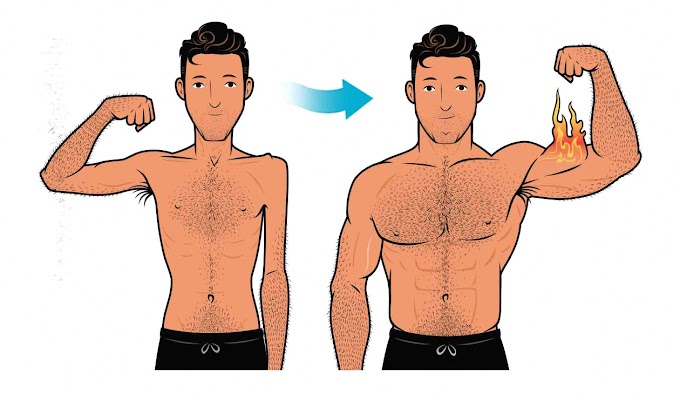In the world of fitness, protein is often hailed as the king of muscle-building nutrition, but there’s a growing movement proving that you can build a strong, lean physique without relying on traditional protein sources. Whether due to allergies, lifestyle choices, or personal beliefs, many individuals are seeking protein-free or low-protein alternatives to achieve their bodybuilding goals. This comprehensive guide explores natural, effective ways to sculpt muscle and strength without traditional protein-heavy diets.
Why Go Protein-Free?
Choosing a protein-free or low-protein bodybuilding path is not just a dietary preference—it’s often a conscious lifestyle decision. Some individuals face medical conditions like kidney issues, others have allergies to protein supplements, while some follow spiritual or ethical dietary practices that limit or eliminate protein-rich foods.
The good news? Your body can adapt. With the right combination of nutrients, training, and recovery, it’s absolutely possible to grow muscle and maintain performance.
How Muscle Growth Happens Without Protein
While protein provides amino acids—the building blocks of muscle—there are alternative metabolic pathways and nutrient pairings that can stimulate muscle growth, even with minimal protein intake.
The key lies in:
-
Caloric surplus from complex carbs and healthy fats
-
Enhanced muscle stimulation through progressive overload
-
Hormonal optimization via sleep and stress management
Utilizing trace amino acids from plant-based foods
Top Nutrient Sources for Protein-Free Muscle Gains
Even on a protein-restricted diet, you can still fuel your body with muscle-supporting nutrients. Here are key components that power protein-free bodybuilding:
1. Complex Carbohydrates for Energy and Muscle Volume
Carbs are not just fuel—they’re critical for muscle recovery and glycogen replenishment, especially when protein is absent. Incorporate:
-
Sweet potatoes
-
Brown rice
-
Oats
-
Quinoa (minimal protein content)
-
Bananas and figs
-
Beets and carrots
These high-fiber, nutrient-dense carbs not only energize workouts but also enhance muscle fullness and endurance.
2. Essential Fats for Hormonal Health
Fat plays a crucial role in testosterone production and overall recovery. Include:
-
Avocados
-
Extra virgin olive oil
-
Coconut oil
-
Flaxseed oil
-
Chia seeds (low protein content)
-
Walnut and almond butter (sparingly)
These fats ensure your hormonal profile stays optimized, a vital factor in maintaining lean muscle mass.
3. Amino Acid-Rich Vegetables and Fruits
Even without typical protein foods, some vegetables and fruits offer trace amino acids, which—over time—can contribute to muscle preservation:
-
Spinach
-
Broccoli
-
Seaweed
-
Pumpkin
-
Kale
-
Mangoes and avocados
While these contain minimal amino acids, when paired with resistance training, they can still play a supporting role in tissue repair and growth.
Training Principles for Protein-Free Bodybuilding
1. Focus on Compound Movements
Engage in exercises that activate multiple muscle groups, such as:
-
Squats
-
Deadlifts
-
Push-ups
-
Pull-ups
-
Rows
-
Lunges
These exercises stimulate more muscle fibers, encouraging growth even with limited recovery resources.
2. Increase Time Under Tension (TUT)
Slower reps, controlled negatives, and isometric holds maximize muscle activation. This creates microtears in muscle tissue that your body will repair and rebuild—even with lower protein intake.
3. Train Smart, Not Excessive
Without protein as a rebuilding tool, overtraining can lead to muscle breakdown. Stick to:
-
3–4 strength sessions per week
-
Adequate rest days
-
Short, intense sessions (45–60 minutes)
Recovery Without Protein: Strategic Methods
1. Prioritize Sleep
During deep sleep, the body naturally produces growth hormone, a critical factor in tissue regeneration. Aim for:
-
7–9 hours nightly
-
Consistent sleep schedule
-
No screens 1 hour before bed
2. Use Adaptogens for Hormonal Balance
Natural herbs can support adrenal health and stress resilience, which helps in muscle recovery:
-
Ashwagandha
-
Rhodiola Rosea
-
Maca root
-
Turmeric (anti-inflammatory)
3. Cold Therapy & Active Recovery
Cold showers, cryotherapy, and gentle stretching sessions can stimulate blood flow, reduce inflammation, and support recovery without relying on dietary protein.
Supplements for Low-Protein Bodybuilders (Optional)
If you’re avoiding traditional protein, but are open to supplemental nutrients, consider:
-
Essential Amino Acid (EAA) blends – very low in volume, but rich in BCAAs
-
Creatine Monohydrate – helps increase strength and muscle volume
-
L-Glutamine – supports muscle recovery and gut health
-
Greens powders – boost micronutrient intake from plants
Sample Low-Protein Bodybuilding Meal Plan
Here’s a daily meal outline for those pursuing muscle building without heavy protein intake:
Breakfast:
-
Oatmeal with almond milk, chia seeds, banana slices, and cinnamon
-
Herbal tea with coconut oil
Mid-Morning Snack:
-
Sweet potato with olive oil drizzle
-
Handful of dried figs
Lunch:
-
Brown rice with sautéed spinach, carrots, beets, and avocado
-
Fresh mango juice (no sugar added)
Pre-Workout Snack:
-
Date and walnut energy bites
-
Beetroot juice
Dinner:
-
Quinoa with kale, olive oil, steamed pumpkin, and lemon dressing
-
Baked apple with cinnamon
Before Bed:
-
Warm herbal tea with ashwagandha extract
Common Misconceptions About Protein-Free Bodybuilding
Myth 1: Muscle Building Is Impossible Without Protein
Fact: While challenging, muscle growth is still possible with strategic training, surplus calories, and micronutrient optimization.
Myth 2: Energy Levels Will Plummet
Fact: When powered by slow-digesting carbs and healthy fats, many report increased endurance and focus compared to high-protein diets.
Myth 3: You’ll Lose All Your Gains
Fact: With proper training, recovery, and caloric intake, muscle loss can be prevented even with a low-protein diet.
Conclusion: Yes, You Can Build Muscle Without Protein
Building a strong, defined body without relying on protein is not only possible—it’s becoming a viable alternative for health-conscious, ethical, and allergic individuals. By mastering your macros, training plan, and recovery strategy, you can forge a powerful physique naturally and holistically.
If you're committed, consistent, and creative, the results will come—without a single scoop of protein powder.



.jpg)


.jpg)
![Discover Affordable Gym Membership Options in [Pakistan] - Get Fit and Stay Healthy for 24/7 on a Budget](https://blogger.googleusercontent.com/img/b/R29vZ2xl/AVvXsEhawagVhtA7EbKwQCGqm_IZV4U6ZOhT4YTL_6cTCWhJuDPK0CYNxoOJuIEjUmLvCPRxvLBKv2Od2t8JG3K_rOGpbRkeTpmeW0az_ni9OB219BDoTaBwr7ymCdADvcdF8RQveiZTch1SBzg_MSuW_1WbUBtUWkoiGrmbWEWY4yiK4-b7sd_Ft_adHUK50Q/w72-h72-p-k-no-nu/Colorful%20Brush%20Fitness%20Facebook%20Cover.png)
.jpg)


.jpg)




0 Comments